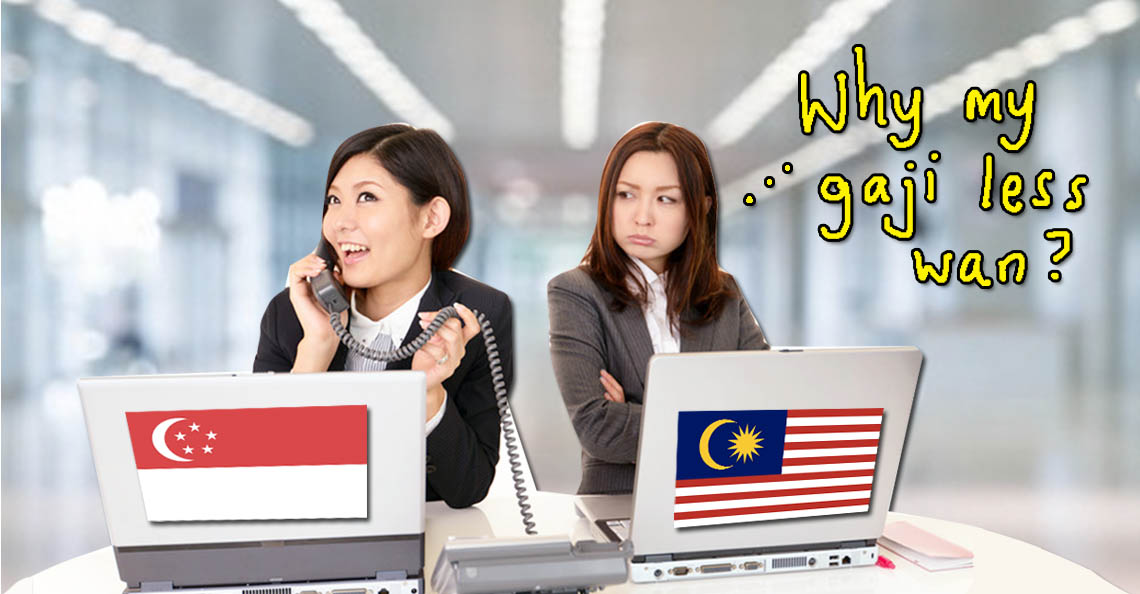Couldn’t get Taylor Swift SG tickets? The system was rigged against you
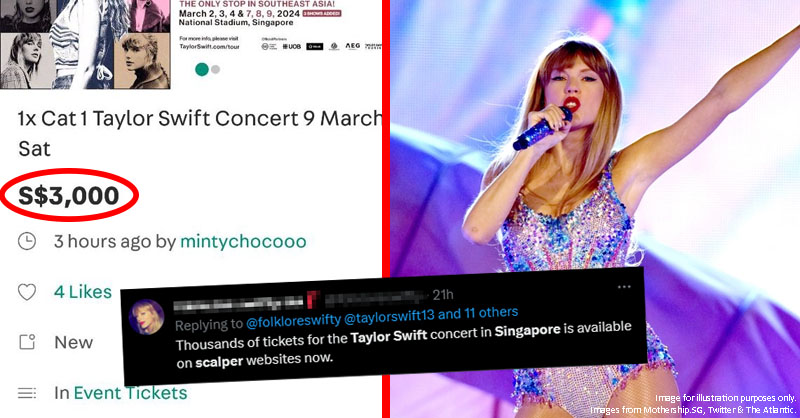
- 725Shares
- Facebook632
- Twitter17
- LinkedIn10
- Email10
- WhatsApp56
Fairly recently, there was a big hoo-haa about scalpers reselling tickets for the upcoming Coldplay concert in Malaysia for eye-bleeding prices:

And just yesterday, news broke that some of the Taylor Swift concert tickets happening in Singapore next year were up on Carousell for 10 times the original price shortly after the presale.
Netizens have pointed their fingers at scalpers and resellers for making it extremely difficult for regular people to get tickets for both the Coldplay and Taylor Swift concerts. As a result, pitchforks and torches have been brought to various social media platforms. In case you didn’t know:
- Scalpers – People who buy tickets for an event and resell them at an exorbitant price
- Resellers – People who buy tickets on behalf of other people, sort of like a booking system
One of these resellers has apparently bought up 400 Coldplay tickets for their clients, which is mindblowing when you consider that many people couldn’t even get their hands on one. And check out this ticket being resold by a scalper for RM43,200…
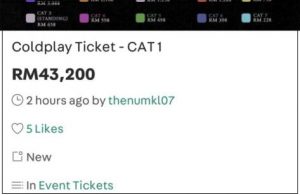
Most people will look at this, and very understandably, place the blame on scalpers and resellers for their part in the whole fiasco. What y’all have to also know is that Live Nation, the organizer of the Coldplay concert, may have Cold-played a part in this. More specifically…
Live Nation has been known to sell tickets to scalper websites

On multiple occasions, Live Nation has come out to warn aspiring concertgoers against buying tickets from scalpers. Y’know, because fans shouldn’t have to pay crazy amounts of money to see their favorite artists perform live.
Yet, in an interview with Billboard (an American music and entertainment magazine), Live Nation admitted that they’ve put up ‘thousands’ of tickets to their events on scalper websites for ‘about a dozen’ artists between the years of 2016 and 2017, with 88,000 of Metallica’s tickets being sold this way. We’re sure that that’s got nothing to do with the fact that Live Nation made USD$18.3 billion (roughly RM80.52 billion at the time) in the same two years.
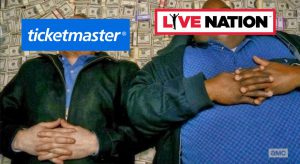
But why? Why would a ticketing company go through all that trouble and risk dragging their name through the mud? There’s no ceiling price on scalper sites like StubHub, so tickets can be sold at a premium. Great for people in the T20 strata, not so great for the rest of us.
Live Nation seemed to know what’s up, because they’ve gone on to say in 2019 that they’ve stopped such practices in favor of more legit, profitable strategies like VIP packages. It would’ve been an amazing redemption arc for the ticketing giant, except… their subsidiary, Viagogo, were fined 23.5 million euros by the Italian authorities in 2022 for flouting the country’s secondary ticketing laws.
And if you don’t like how Live Nation runs their shows, too bad, cuz…
There’s no one else to buy concert tickets from
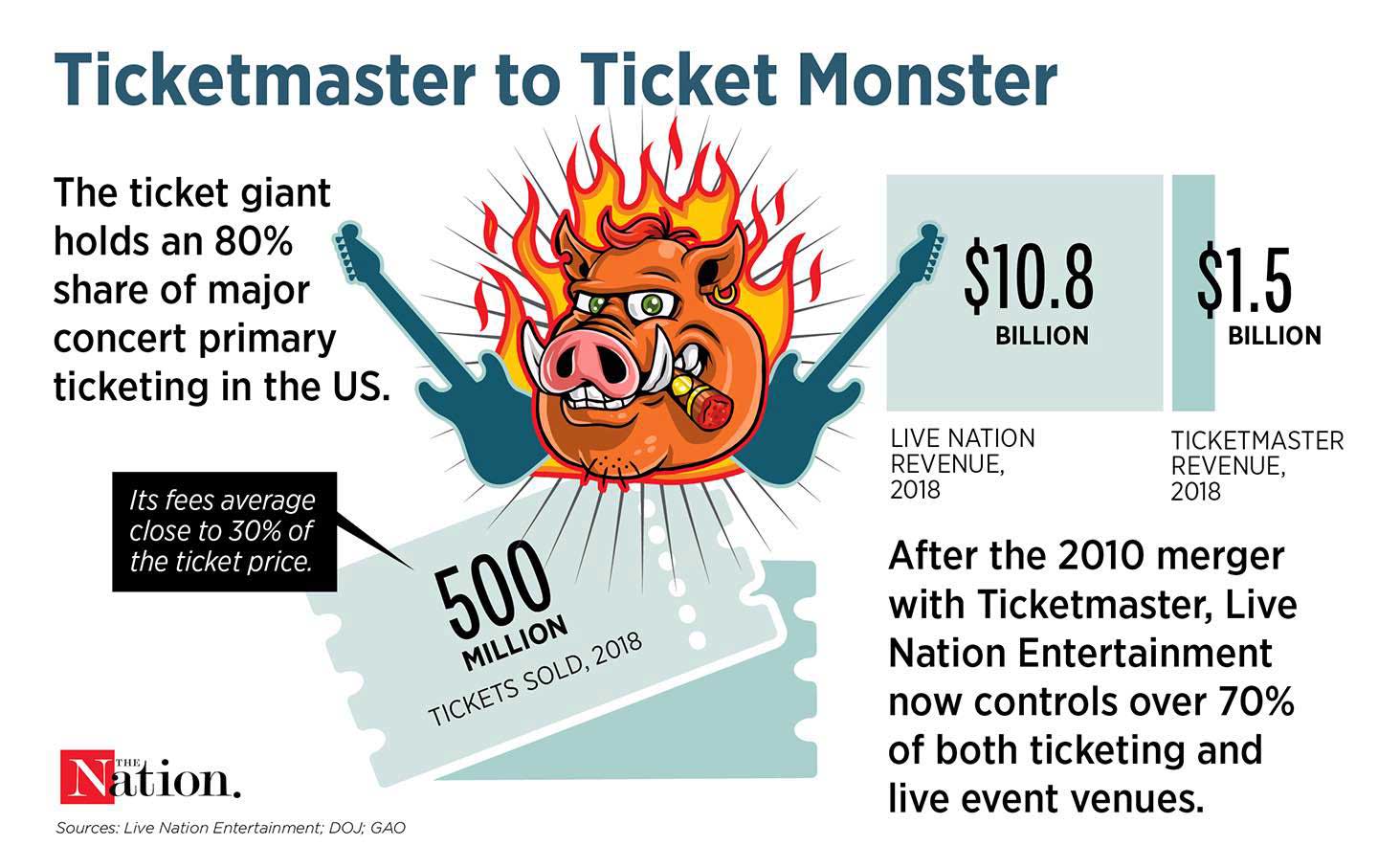
‘No one else’ is a bit of an exaggeration, but it’s not unfair to say that Live Nation has a monopoly on the concert ticketing industry. According to CNBC, the company (and their subsidiaries) controls a whopping 70% of the market. And with monopolies come – say it with us – arbitrary pricing!
For the less economically inclined among you lot, that means Live Nation can pretty much set whatever price they want for tickets cuz where else are you gonna get event tickets?
And let’s face it, real big names only come to Malaysia like once in 50 years or something, and people don’t wanna miss out. True fans of Coldplay would pay through their noses just to get a whiff of Chris Martin’s vegetarian sweat. That last part was no exaggeration, and Live Nation’s CEO, Michael Rapino, acknowledges as much on the Bob Lefsetz Podcast:
“I don’t think we should fool ourselves that fans will not pay, especially the… fans, that will not pay for the great show. But my job isn’t to debate whether the artist wants to take all the money or… want to charge too little. My job is just to deliver that platform for them.” – Michael Rapino, on the Bob Lefsetz Podcast
He knows the fans will cough up the cash, when push comes to shove. Rapino also said while he doesn’t always think that costs and fees (that are tacked onto concert tickets) are justified…
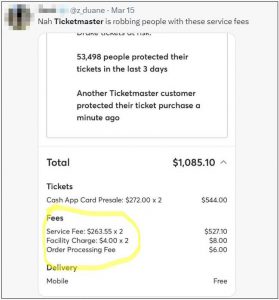
…he maintained that it’s unreasonable for people to expect to ‘see an artist at an arena for USD$20‘. That’s fair… except concert tickets haven’t been USD$20 for a long, long time, and we doubt that any concertgoer expects to attend a performance for that price. He also didn’t really address the issue of ticket fees being crazy high.
In the event that you’ve skipped over a lot of parts above, here’s the TL;DR so far:
- Live Nation’s stranglehold on the ticketing industry has afforded them the luxury of setting whatever prices they like for tickets; and
- The company’s history of putting tickets up for sale on scalper websites has made it grueling for regular, non-rich fans to get tickets.
We good? Alright, let’s close the circle by addressing individual scalpers and resellers and how…
Most countries have no laws to combat ticket scalping and reselling

Have y’all noticed that sometimes when tickets for concerts go up for sale, they get bought up suspiciously fast? Well, part of that can be chalked up to the popularity the artists. The other, more sinister reason is that scalpers and resellers are buying those tickets en masse using bots.
Bots are, basically, computer programs that can purchase tickets faster than any human alive, and these bots can be set up so multiple are running at the same time. This gives scalpers and resellers an unfair advantage, because your regular concertgoer won’t have the know-how to use bots to get tickets… which, for good reason, frustrates them beyond belief.
It should surprise you then, that there are no laws regarding ticket scalping and reselling in Malaysia. As a matter of fact, only a select few countries have anti-scalping laws, like Australia, Canada, Ireland and Israel. But hey, Fahmi Fadzil saw that RM43,200 ticket and promised that the Malaysian Communications and Multimedia Commission will do something about the recent Coldplay scalping situation, and a legal framework in the not-so-near future seems to be in the works.
Until then, the sad reality is…
Scalpers and resellers will continue to run rampant without laws

Yep, until laws come in (at least in Malaysia), we probably won’t see an end or even a reduction in the number of scalpers and resellers anytime soon. It’s just a question of supply and demand – for as long as there are people willing to fork out the money, scalpers and resellers will do what they do, especially without any regulations in place.
And if you think that fans should just stop going to concerts to curb the demand for overpriced tickets, that’s probably not the best way to go about things. It’s like saying people should just stop going to mamak or fast-food joints because of the unhealthy food. It’s not gonna happen. That goes double for fans whose artist of choice might only come to Malaysia once in their lifetimes.
In order to begin addressing this issue, both ticketing companies and the government need to step up, because the only losers in this game are the fans.
Written by someone who didn’t manage to get tickets for the Coldplay concert. Sekian.
- 725Shares
- Facebook632
- Twitter17
- LinkedIn10
- Email10
- WhatsApp56


